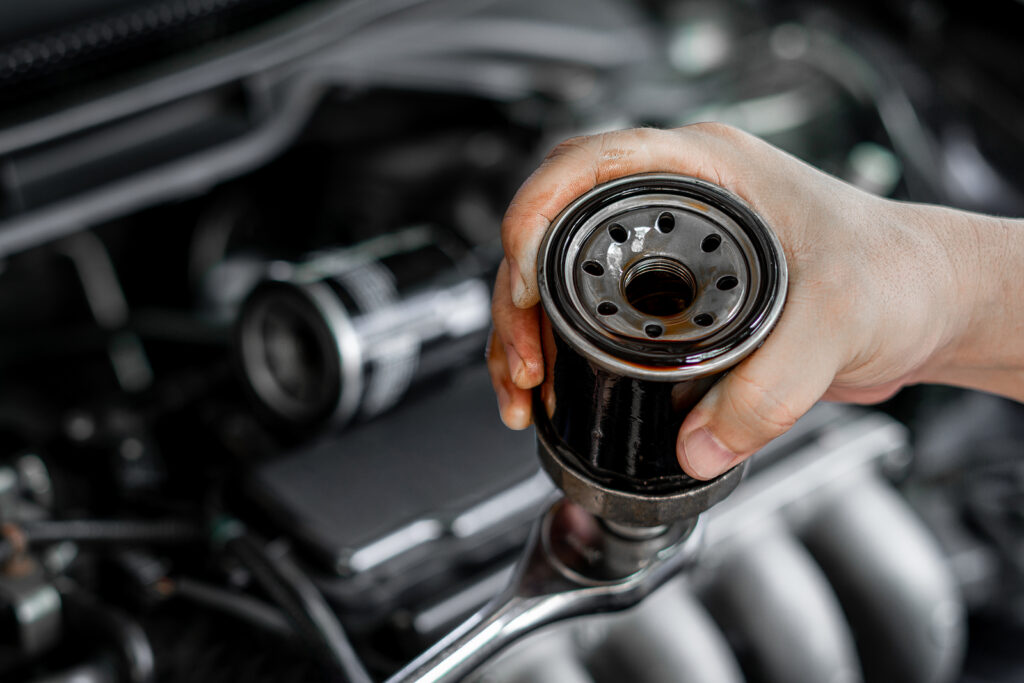Whether you’re a car aficionado or simply like to save money by being handy with your car, you can suddenly find yourself with a lot of automotive waste and unsure of what can be thrown away. Today we’re going to look at the close companion to car motor oil: the oil filter. Learn more about how to handle and store them after use, the risks they have as hazardous waste, and how to dispose of car oil filters—including your options for recycling them.
Dealing with Used Oil Filters
Once you’ve wrestled the oil filter from your car, it’s important to deal with it properly. You should place it into a sealable bag or container as the oil in the filter can give off harmful VOCs (Volatile Organic Compounds, such as fumes given off by paint thinners and solvents) and can leak motor oil. For disposal, it needs to be handled like motor oil—after all, it contains up to 12 ounces of motor oil when undrained.
Massachusetts law requires stores to accept used oil for recycling to the store where you purchased it: you can also check with them about oil filters. They may want you to drain the oil filters first; to do so, puncture the domed part of the oil filter with a sharp tool and drain, collecting the oil. You can also drop off such drained filters at a municipal collection program in your community, if available. If not, wrap the drained used oil filter in a plastic bag with absorbents such as a rag or kitty litter for storage before dropping it off with us.
Disposing of Other Hazardous Automotive Waste
While you’re disposing of oil filters, it’s important to know that many other automotive products are also hazardous waste and need to be disposed of as such. Save yourself from extra trip by gathering them all before coming to one of our collection centers:
- Used Motor Oil: Collect oil in a clean container with a screw cap, such as the original container. Return used oil for recycling to the store where purchased or bring it to us! Learn more, including how to use the MA hotline, in our blog here.
- Coolant & Antifreeze: Spent coolant and antifreeze is treated as hazardous waste due to contamination. Much like motor oil, your purchasing place should have a recycling program. Otherwise, store it safely (out of reach of pets and children) and bring it to us.
- Car Batteries: Hazardous due to acids and heavy metals, car batteries have several disposal options. Most can be exchanged with new batteries, sold off with the vehicle, or collected at municipal events and drop-offs (though these aren’t always offered)..
- Gasoline: That emergency gas supply can go bad! If this happens to you, it needs to be disposed of at a community disposal event or a household hazardous waste collection center like ours. Learn more about safely storing and disposing of gasoline here.
At NEDT, we help New England residents dispose of automotive hazardous waste (and so much more) when other options aren’t available or feasible, but we think the first step should always be minimizing the amount of hazardous waste you bring into your home in the first place. Learn more about dealing with household products with our Fact Sheets. If you’re interested in drop-off or pick-up of hazardous household products, see our locations, contact us online, or call us at 1-866-769-1621.



Leave a Reply